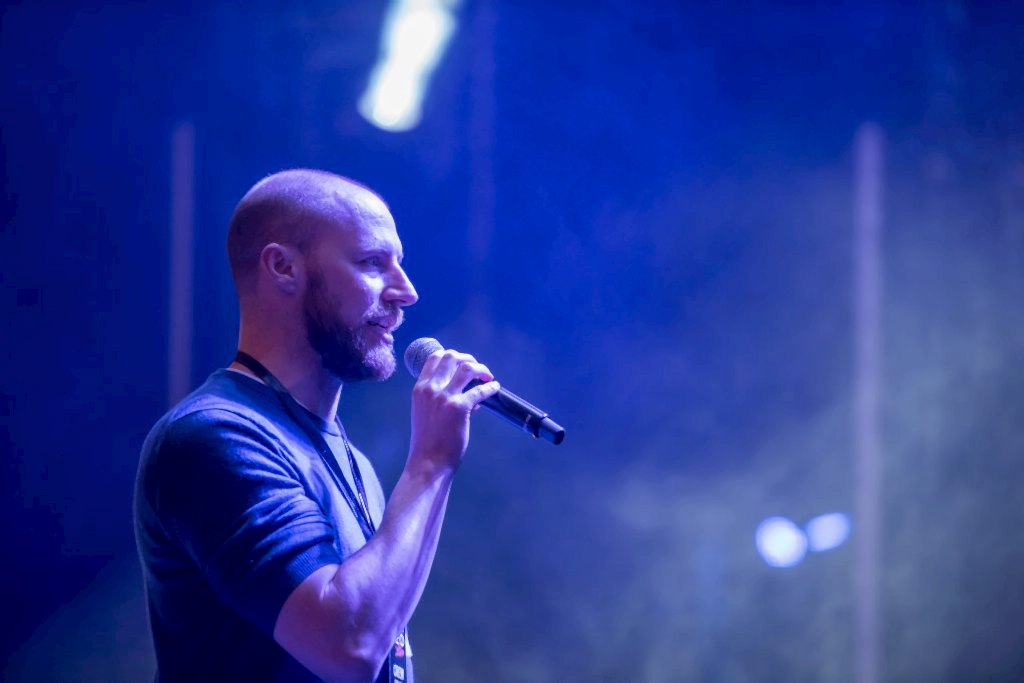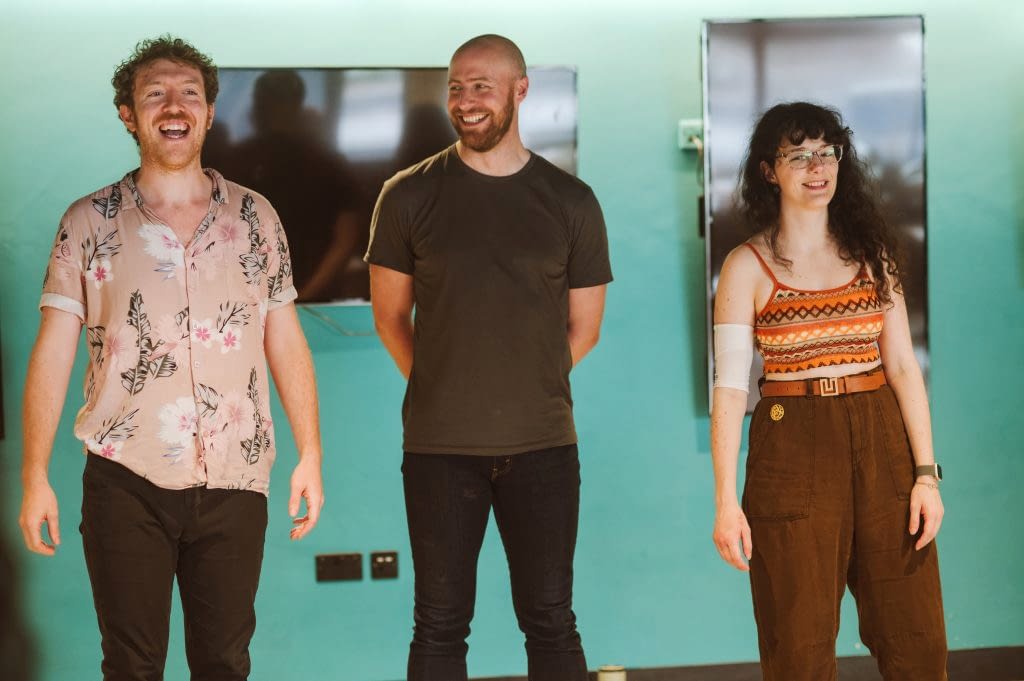BY STEPHEN WHITSON
Stephen Whitson is a Theatre and film director and has directed productions in London and around the UK, and is the Associate Director of the West End & UK and Ireland productions of Hamilton. Other directing credits include Dan + Phil: Terrible Influence (London Palladium & World Tour), Diary of a CEO (London Palladium & UK Tour), West Side Story (BBC Proms, Royal Albert Hall & EIF), You Forgot The Mince (Edinburgh Fringe & UK Tour), Benighted (Premier, London), The Last Five Years (The Lyric Theatre, Belfast), Elegies for Angels, Funks and Raging Queens (West End), Little Women (Old Rep Theatre, Birmingham), Putting It Together (The Lyric Theatre, Belfast), Moulin Rouge (West End & Germany), 42nd Street (West End), Barnum (UK Tour), From Here To Eternity (West End) and Private Lives (Royal Lyceum Theatre, Edinburgh).
Stephen is a graduate of The Dance Of Scotland.
Auditioning is both nerve-wracking and exciting. It’s your big chance to show what you’re made of and why you belong in a room full of fellow creative souls. Watching people audition week in, week out, I can tell you this: preparation and creativity are your best friends. But so is remembering to be yourself and enjoying the process – I often think of an audition as day 1 of rehearsals – it’s my first chance as a director to work with someone I’m hoping to work with a lot more, and in return I hope each person leaves fuller than they arrived!
So, here’s my advice to help you walk into that audition room feeling confident, curious, and ready to shine.

Know Your Stuff (Seriously, Know It!)
First things first: you need to know the material inside out (whether it’s something you’ve picked, or we’ve sent it to you). I’m not just talking about memorising lines – although yes, get those down early so you’re not frantically cramming the night before (I did that a lot as an actor and trust me, it doesn’t do you any favours!). I mean, really understanding the character and the story.
Ask yourself:
• What does my character want, and what’s stopping them from getting it?
• How do they feel in this moment?
• Where are they coming from, and where are they going?
Don’t just stop at your piece in isolation. Honestly, I find the act of reading plays a bit boring, they are written to be brought to life, but luckily we live in an era where you can usually find other ways to experience the material – for example when I was directing Richard III last year I found a recording on Audible that had some brilliant superstars reading the play – that was my first window into the play and helped when I eventually returned to the text. A lot of shows are now filmed so you can usually find a copy online or on one of the streaming services.
Knowing the whole piece helps in establishing the context for the extract, and context is everything. You might find out that your character’s big emotional outburst is actually less about rage and more about heartbreak.
Think of it like being a detective – every clue helps you solve the mystery of who your character is.
Do the Homework (But Make It Fun)
Start by asking when the show is set. What was happening in the world then? If you’re playing a character from, say, the 1920’s, their attitudes and behaviours will reflect the norms of that time. A little research can go a long way in making your performance feel authentic.
Then have a look at the writer. Who are they? What made them write this piece? For example, in Hamilton, the Obama-era of American politics in which Lin-Manuel Miranda wrote it is just as important, if not more important, than the 18th century period in which the show is set – knowing and looking into this can add a whole new layer to your performance and help answer any question you might have.
And here’s the best part: if your character is based on a real person, dig into their life. Imagine you’re playing Queen Elizabeth I. Wouldn’t it be fascinating to know about her quick wit, political shrewdness, and legendary temper? These little details can bring your performance to life.
Be a Fan of Theatre
It’s great to look into the performance history of your piece. Has your character been played before? If so, by whom? Watch recordings, read reviews, and soak it all in.
Let’s say you’re performing a monologue from Hamlet. You could watch Ian McKellen, Kenneth Branagh, or even a lesser-known actor’s interpretation. Each will bring something unique, and you can use that as inspiration. But remember, inspiration is the key word here – you’re not here to mimic anyone else, it’s more about developing your toolkit, being aware of different perspectives and maybe through finding out about other actors you’ll find out something which unlocks your own career.
The more information you have, the more interesting you’re likely to find something, which always makes it easier to spend time on a piece of material.
It also gives you more to talk about in the audition – auditions aren’t just about the interpretation of the material, most of the time I’m asking myself “could I work with this person?” and the answer is more likely to be “yes” if we have an interesting conversation in the room.

Play Around and Take Risks
People also ask me what specific things they can do to succeed in an audition, but auditions aren’t just about showing you can follow the rules. They’re about proving you’re creative, bold, and willing to take risks. It’s as much about you – your quirks, your choices, your personality.
I am frequently disappointed if someone comes into the room as a “blank canvas”.
I am never disappointed by someone making a strong, informed, offer.
So don’t be afraid to experiment. Try different line readings. Play with the physicality of the character. Maybe your first instinct is to deliver a line angrily, but what happens if you try it with sadness, or even humour? The more you explore, the more layers you’ll discover – find out what makes sense for you.
Enjoy the Ride
This one’s the most important: have fun. Seriously. Auditions should be exciting, not terrifying. Yes, there’s pressure, but at the end of the day, it’s a chance to do what you love – act!
Think of the audition as a collaboration, not a test.
The panel isn’t there to judge you harshly; they’re rooting for you. They want to see you succeed – trust me, I breathe a bit easier if someone comes in and nails their audition because I know that we’ve found someone who can do the job, and that makes my life a lot easier and brighter!
And if you mess up? Shake it off and keep going. Everyone has fluffed a line or forgotten a word – it’s how you recover that counts.
Good luck!
Auditioning is a big deal, but it’s also just the beginning of your journey. The effort you put into preparing – learning your piece, researching the play, and exploring your character – will not only help you nail the audition but also set the stage for the kind of actor you want to be.
So be curious. Be bold. Be yourself. And most of all, enjoy the process. Because when you walk into that room and pour your heart into your performance, it’s not just about succeeding – it’s about showing the world what you’ve got to offer. Even if it doesn’t work out this time, who knows who is in the room and might remember you in the future? That’s sometimes the most exciting part!








